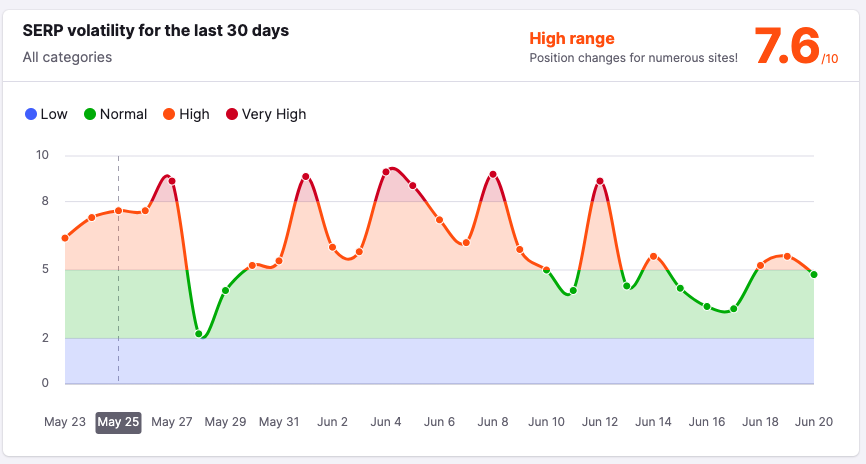Introduction: Unveiling the Mysteries of Google's Core Updates
In the dynamic realm of search engine optimization (SEO), Google's Core Updates stand as pivotal moments that reshape the landscape of online visibility. These algorithm updates, often shrouded in secrecy, introduce new ranking factors and modify existing ones, challenging website owners and SEO professionals to adapt and optimize their strategies accordingly.
Understanding the Impact of Google's Core Updates
Google's Core Updates serve a crucial purpose in maintaining the quality and relevance of search results. By periodically refining its algorithms, Google aims to reward websites that provide valuable and user-friendly content, while penalizing those that engage in manipulative or low-quality practices.
The impact of Core Updates can be far-reaching, affecting website traffic, search rankings, and overall SEO performance. Websites that align with Google's evolving guidelines tend to experience positive gains, while those that fail to adapt may face significant drops in visibility.
Anticipating the Post-May 2024 Google Core Update
While Google doesn't release specific details about future Core Updates, analyzing historical trends and industry insights can provide valuable clues about potential changes. Here are some key areas to consider:
-
Focus on User Experience (UX): Google has consistently emphasized the importance of UX, prioritizing websites that provide a seamless and engaging user experience. Expect continued emphasis on factors like page loading speed, mobile-friendliness, and overall website usability.
-
Content Quality and Relevance: High-quality, informative, and engaging content remains a top priority for Google. Expect continued focus on original content, well-structured information, and relevance to user search queries.
-
Technical SEO Compliance: Technical SEO issues, such as broken links, website structure problems, and indexing errors, can hinder a website's performance. Ensure your website adheres to technical SEO best practices to avoid penalties.
-
Evolving Search Intent and User Behavior: Google's algorithms are constantly adapting to understand user intent and behavior. Stay updated on emerging search trends and tailor your content and optimization strategies accordingly.
Preparing Your Website for the Post-May 2024 Update
With the potential for a Core Update in the latter half of 2024, now is the time to start preparing your website. Here's a proactive approach:
-
Conduct a Comprehensive Website Audit: Assess your website's overall health, identifying potential technical SEO issues, content gaps, and areas for improvement.
-
Prioritize User Experience: Evaluate your website's UX, ensuring it offers a fast, mobile-friendly, and engaging experience for users.
-
Create High-Quality Content: Focus on producing original, informative, and well-structured content that addresses user needs and search intent.
-
Monitor Industry Trends and Google Updates: Stay informed about emerging SEO trends, algorithm updates, and industry best practices.
-
Build Backlinks from Reputable Sources: Earn high-quality backlinks from relevant and authoritative websites to enhance your website's credibility.
Conclusion: Embracing the Evolving SEO Landscape
Google's Core Updates, while challenging, present opportunities for website owners and SEO professionals to refine their strategies and deliver exceptional online experiences. By staying ahead of the curve, embracing user-centric approaches, and prioritizing quality over quantity, you can navigate the ever-changing SEO landscape and ensure long-term success.
Here are some additional points to consider for your conclusion:
-
The Importance of Continuous Learning: SEO is a dynamic field, and staying updated on the latest trends and best practices is crucial. Regularly consume industry publications, attend SEO conferences, and participate in online communities to stay informed and adapt your strategies.
-
A Data-Driven Approach: Utilize SEO analytics platforms to gain valuable insights into your website's performance, user behavior, and search engine ranking factors. Leverage data to identify areas for improvement and measure the effectiveness of your SEO efforts.
-
Building a Long-Term Strategy: Focus on long-term SEO success by creating sustainable content, building high-quality backlinks, and fostering strong user engagement. Avoid quick fixes or black-hat tactics that could penalize your website in the long run.
-
The Power of Collaboration: Collaborate with web developers, content creators, and other marketing professionals to ensure a holistic and effective SEO strategy. By combining expertise from different areas, you can create a website that excels in both technical SEO and user experience.
Looking Ahead: The Future of SEO
While specifics remain unknown, we can expect Google to continue prioritizing user experience, rewarding high-quality content, and adapting to evolving search intent. Emerging technologies like artificial intelligence and voice search will also likely play a significant role in future SEO strategies.
By embracing a data-driven, user-centric approach and continuously adapting to the ever-changing SEO landscape, you can ensure your website remains visible and successful in the face of future Google Core Updates and beyond.
